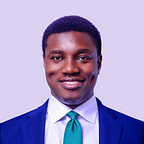I want more . . .
(Picture by Olaku A. O.)
I am a proud Igbo man. That’s my primary identity and I love the people and the culture. Igbo people are boundless and always create wealth regardless of the odds that may be stacked against them. How do you explain the economic resurgence of an ethnic group that was decimated by a brutal civil war?
No one expected it. Generous pundits expected half a century before any form of significant resurgence but it was done in less than a decade.
I am a proud Igbo man but being Igbo is not enough for me. I want more.
I have always been drawn to the Yoruba culture and its people. They are proud, sociable, and sophisticated people. I love their music, which is next to none in Nigeria or even Africa, and they throw the best parties around. Life in Nigeria would be several levels less colourful if not for the charm and glamour (some will say the irresistible lure of “Yoruba Demons”) of this ethnic group. On a business note, the Yorubas can boast of remarkable corporate leaders and technocrats, engendered by their culture of diplomacy and hierarchy.
Most of my business partners and colleagues are Yoruba, and together we have built remarkable lives for ourselves and our families. However, being Yoruba is not all, I want more.
I have always loved the royal gait of the Fulani. The rich history of conquests of their forebears and preservation of modern-day leaders. They are a proud people with a distinction for politics beyond any other tribe in Nigeria. The most trustworthy people I have ever met are Fulani and they are known for brutal honesty — hate it or love it, they stand on their words. I have three Fulani friends who serve as my “truth barometer” and they have never disappointed me. That said, being Fulani doesn’t complete me, I want more.
Nigeria is home to more than 250 ethnic groups and 500 languages, each with its unique culture and traditions. Proud and confident people who are guardians of a way of life that defines who they are, how they behave, choices they make, and ultimately determine their fate.
Culture and tradition are powerful factors in any society or community. It is the software upon which society operates and determines how people are celebrated and ostracised.
If you want to build a great nation, you have to build a great national culture. The right culture fosters political integration, economic prosperity and religious harmony. It will enhance people’s collective identity, unity and provide the basis for the proliferation of outstanding arts and civilisation.
How do you build a national culture off the multitude of ethnic groups and subcultures in Nigeria?
That’s a difficult question and I am not an expert but I will share some of my thoughts and practices.
No culture is perfect. Each has its pros and cons. However, we can build a hybrid by identifying befitting cultural practices and de-emphasizing the not-so-good practices. For instance, I have taught my son to greet in the traditional Yoruba way because it equips him for corporate leadership.
Culture should be dynamic. The world and life therein changes rapidly, moreso over the last two decades. It means the challenges of today cannot all be addressed by cultures or traditions that are more than a hundred years old. The guardians of culture as well as leaders should be flexible to build consensus on the relevance of culture in our daily lives, as a nation and on individual levels.
Finally, this new age culture shouldn’t be tied to ethnicity or tribe, it should be a way of life preached and accepted by all forms of leaders and should be based on real-life challenges. Principles such as unity, social tolerance, community service, economic sustainability should be woven into a national way of life that can emerge as a national culture for predetermined desirable results.
